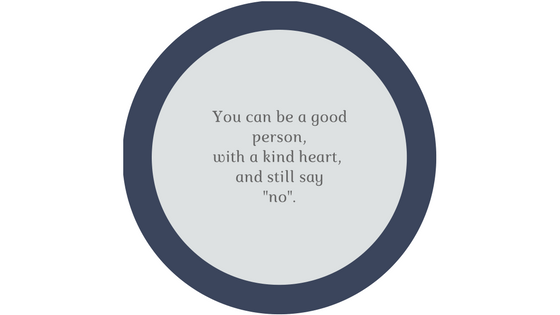I’ve been really lucky. So far, as a freelancer, I haven’t had many run-ins with bad clients.
But on Friday, I had to fire a client.And it was horrible.
For me, I mean. For them, it probably wasn’t a big deal. I’m one of many writers they work with, and I’m probably easily replaceable.
But I had to fire them.
Why? Because I saw a lot of red flags. For example:
- shady reviews (multiple 5-star reviews by the same person/client/company within the span of a few minutes, right after a negative review)
- vague notes (“make the content more compelling” – what does that mean? I Googled it and revised the work to add more emotion & sensory details, but I have no idea if that’s what the client meant or not…)
- “negging” – giving negative comments to break down the self-esteem, then moving in for the kill (in this case, a discount on future work)
As a freelancer, sometimes it’s difficult to think of myself as both a “business owner” and a “worker for hire” at the same time. I’m used to having a boss and a set of guidelines to show me what success looks like. But as a freelancer, I have to be my own boss. I have to look out for my own best interests. I have to put me first.
And that’s hard to do when your first instinct is to please everyone.
But if you’re going to be successful, you have to do this. “If you don’t stand for something, you’ll fall for anything,” as an old friend used to say.
So if you’re a freelancer thinking about firing a bad client, here are some tips:
- Close out whatever work you can.
You want to get out of the contract as quickly and easily as you can, but you also don’t want to leave the client in a lurch. Trust me. Even if they’re horrible to you, there’s nothing to be gained from doing a bad job. Bad clients are more likely to post negative reviews, and if you depend on reviews for your living, this can be damaging. That being said: don’t let the fear of a bad review run your life. Do the best job you can, be professional, and don’t let one bad client have so much power over you. - Don’t give a long, drawn-out explanation.
You don’t have to tell the client why you’re quitting (unless that’s part of your contract). You don’t have to tell them all the ways they messed up, or hurt your feelings, or made your life difficult. If they ask: of course. Tell them what they could do better with their next freelancer. But you don’t have to give them a long, detailed explanation. They probably don’t want to hear it anyways. - Set (and enforce) strong boundaries.
If they want you to do work outside the scope of your contract: don’t start on that work until new terms are negotiated. Or, if you’re not comfortable doing that work, say no. This is how businesses negotiate. As a freelancer, you are a business. Of one. You have to watch out for your business interests. Oh, and in case it wasn’t clear already: ALWAYS HAVE A CONTRACT. - Don’t feel guilty.
This is the hardest one for me because I worry I’m letting people down. But think about it this way: if you’re worried and frustrated thinking about the client… if you feel like they’re treating you badly, using you, taking advantage of you… if they’re making you doubt your abilities, or crushing your self-esteem… well… they’re letting you down. No-one needs that kind of negativity in their lives.
There’s this impression sometimes, in freelancing communities, that the only way to be successful is to work 20 hours/day, destroy your social life, and happily take client abuse. That you have to pay your dues before you can make it big.
I agree that like any career/industry, freelancing requires a bit of a training period. But I got into this field to enjoy my life more. To respect myself more. And part of respecting myself is getting rid of things that don’t work. Bad clients are at the top of that list.
Respect yourself, your work, and your time. Good clients will respect it too.


Great experience for any self-employed person. You became self-employed because you wanted to do what you’re good at, on your own terms. Why settle for anything less? Many people (in business) are a lot thicker-skinned than we realize and take rejection in stride. There will always be some who take it personally, but that is part of their problem not yours. I think the cut-off is healthy and helps you move forward. Everyone needs to learn from experience. God, I sound like Matt (remember him?).